Facts About Albert Einstein
Written by Aindrila Jana, a third-year undergraduate student
Albert Einstein was a German physicist who was born on March 14, 1879, in Germany. He is considered to be the most influential physicist of the 20th century.
Written by Aindrila Jana, a third-year undergraduate student
Albert Einstein was a German physicist who was born on March 14, 1879, in Ulm, Württemberg, Germany. He is considered to be the most influential physicist of the 20th century. Best known for developing the theory of relativity, he also made significant contributions to the development of the theory of quantum mechanics.
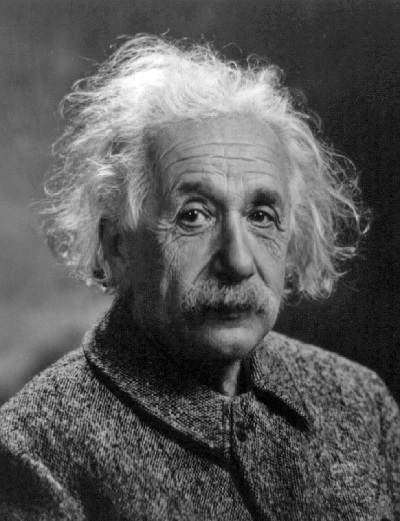
Early Life
Albert Einstein was born to Hermann Einstein and Pauline Koch, a family of secular Ashkenazi Jews. He had one sister, Maria, born two years after him. The family moved to Munich in 1880 where Einstein’s father, Hermann Einstein, and his uncle Jakob founded Elektrotechnische Fabrik J. Einstein & Cie, a company that manufactured electrical equipment that works on Direct Current.
Education
- From the age of 5, Albert attended a Catholic elementary school in Munich. He was transferred to the Luitpold-Gymnasium when he was 8 years old.
- He excelled in maths and physics from a young age, achieving a much higher mathematical level than his classmates.
- He discovered his own original proof of the Pythagorean theorem at the age of 12.
- Einstein became deeply religious during this time. He composed several songs in praise of the Lord and chanted religious songs on his way to school.
- He became seriously interested in philosophy and music when he was 13 and Kant was his favorite philosopher.
- At 16, he took the entrance examinations for the Swiss Federal polytechnic school in Zürich and obtained exceptional grades in physics and mathematics. He achieved a bachelor’s degree in 1900 from here.
- He received a Ph.D. from the University of Zurich, Switzerland, in 1905. Einstein’s doctoral thesis was termed ‘A New Determination of Molecular Dimensions.
Did You Know?
Albert Einstein had an INTP personality type.
What’s that you may ask?
INTP stands for introverted, intuitive, thinking, and perceiving. People with this personality constantly question the world, rather than accepting things as they are which enables them to come up with original solutions. They seek out paths that may not be taken by others and are extremely creative in their approach to problems.
True to his personality type, Einstein was contemplative, reserved, extremely analytical, objective, and logical.
Top 20 Fun Facts About Albert Einstein In 2022
1. Einstein was a gifted musician who loved to play the violin. His mother, a pianist, signed him up for violin lessons at the age of five.
2. There is a general idea that Einstein was a below-average student at school, but this is untrue. He was a very proficient student from a young age and he taught himself Euclidean geometry and algebra over a single summer (don’t ask us what that is)
3. Albert Einstein created the world’s most famous equation: E = mc², which means the mass of a body (m) can be converted into energy (E) when it is multiplied by the speed of light squared (c²). At the most basic level, the equation states that energy and mass are interchangeable and they are different forms of each other.
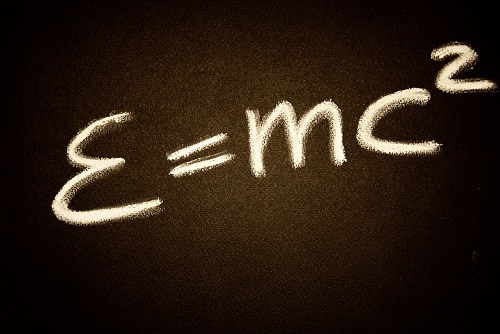
4. Einstein loved sailing but he was a terrible sailor! He often flipped his boat and needed rescuing. His neighbors very frequently had to help Einstein recover his capsized boat!
5. Einstein was asked to take up the position of the President of Israel, but he turned down the offer.
6. Einstein published four groundbreaking papers by the time he was 26, on – the photoelectric effect, special relativity, Brownian motion, and the equivalence of mass and energy. This year, 1905, is sometimes described as his “annus mirabilis”, or “miracle year“.
7. Einstein’s actual IQ remains unknown to this day, even though he is known to be the most influential physicist of all time. His estimated IQ score ranges from 205 to 225, using different scales of measurement.
8. As a child, Einstein was slow to learn speech. He did not start to talk until the age of three, according to his biographer.
9. Einstein graduated from the Zürich Polytechnic University and was awarded the Federal Polytechnic teaching diploma, but faced a hard time finding a teaching job.
It took him 9 long years to land his first job, after graduation. Later, he ended up being a Swiss Patent Examiner. It was during this time that Einstein, inspired by the patents he was reviewing, developed many of his famous theories.
10. Einstein did not like the system of teaching in school. He didn’t like the authoritative training provided to students. He believed in free thinking and the expression of individuality.
11. The parietal lobe in Einstein’s brain was 15% larger than that of an average human brain.
12. Einstein’s fascination for science came from a pocket compass, which was shown to him by his father when he was five years old. He would often wonder what made the needle of the compass point toward a certain direction, and not any other direction.
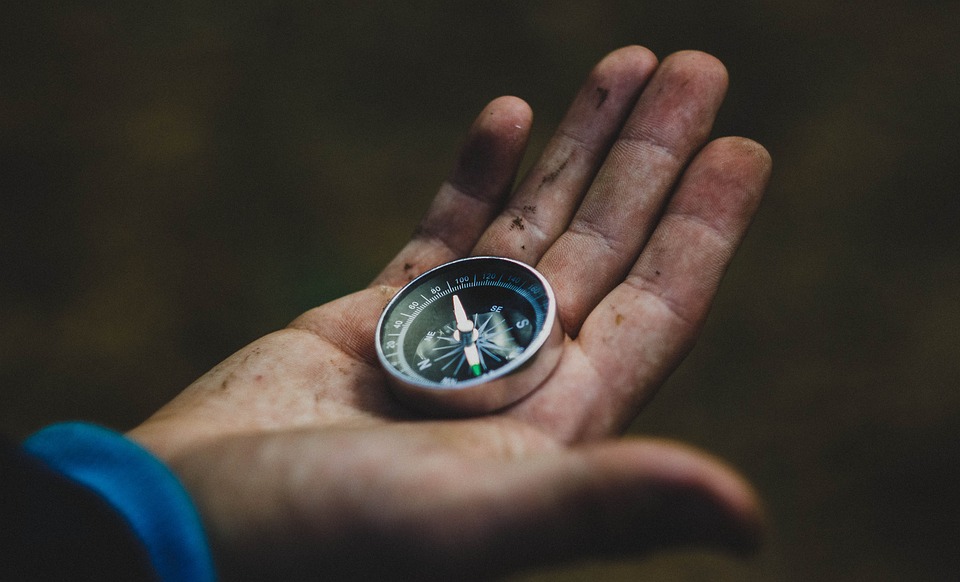
Such was the thinking that marked the onset of his career in science, which eventually made him one of the most renowned scientists all over the globe.
13. Galileo Galilei, an Italian astronomer, physicist, and engineer, was Einstein’s favorite scientist.
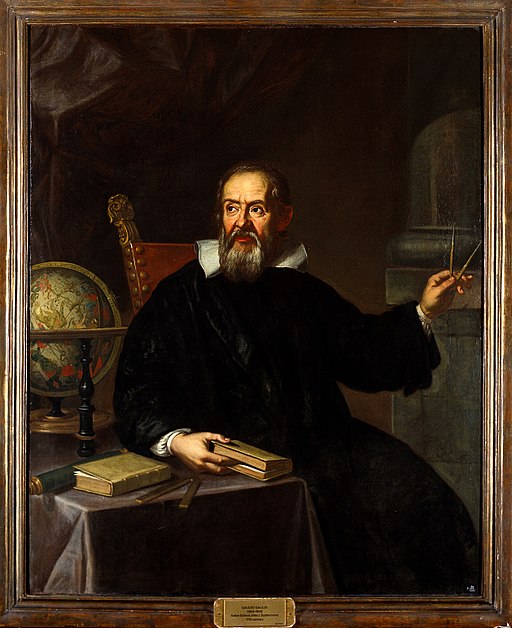
Image Credit: After Justus Sustermans, via Wikimedia Commons
14. Einstein often forgot simple things, since childhood. He couldn’t keep track of his keys or would sometimes leave behind his suitcase!
15. Einstein co-invented a refrigeration method in 1930. As it happened that the refrigerators that were used in the 1920s were very dangerous! Their toxic gases would escape easily and make people sick (or even kill them) as they slept.
Einstein and his colleague Leo Szilard decided to create a solution to this problem and invented a pump that replaced the refrigerator’s motorized compressor, which is what caused the problem.
But, even though Einstein and Szilard received a US patent for this new method in 1930, they were not able to sell their invention.
Einstein was a great innovator and is also considered to be the man behind the inventions such as – photoelectric cells, lasers, fiber optics, and semiconductors.
16. Einstein had a distinct style of teaching as a junior professor at the University of Zurich. He used cards instead of paper for preparing notes. He would also note down ideas during the lectures. He allowed his students to interrupt him and he used to ask his students if they were following him, after certain intervals of time. This kind of interaction between a teacher and the pupils was unique at the time.
17. Einstein’s prediction that gravity bends light was confirmed during an eclipse in 1919. This made him one of the most famous scientists in the world.
18. Einstein was believed to be a sufferer of a mild form of echolalia, which is a psychiatric disorder. This caused him to repeat phrases to himself, twice or thrice, especially the ones which he liked.
19. Einstein was often forgetful, and could not remember names, dates, and phone numbers.
20. in 1921, Einstein was awarded the Nobel Prize in Physics “for his services to Theoretical Physics, and especially for his discovery of the law of the photoelectric effect.”
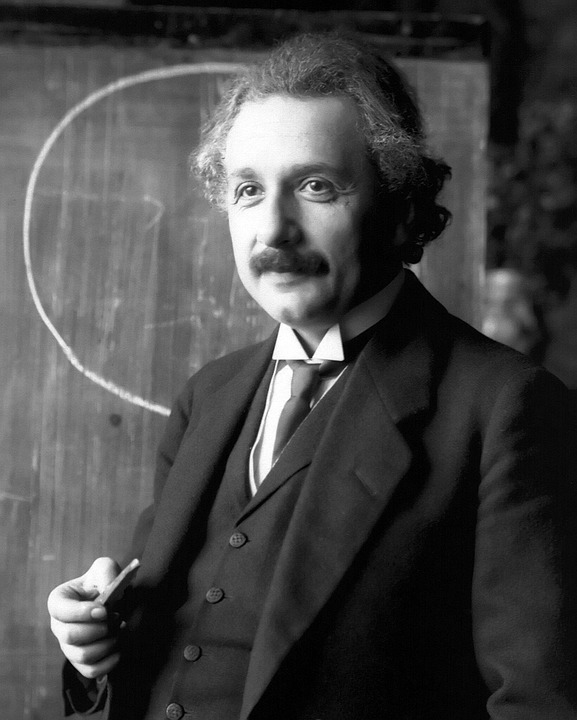
Personal Life
Did you know that Mileva Maric, Einstien’s wife, was an accomplished physicist and mathematician?
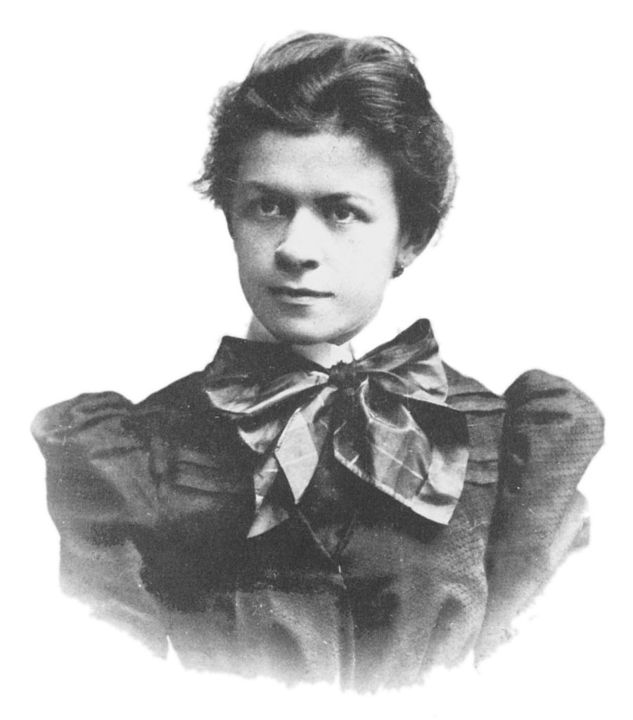
Mileva was a Serbian physicist, and mathematician and was Einstein’s colleague who is said to have had an influence on Einstein’s work. At the age of 21, Mileva enrolled in the Swiss Federal Polytechnic College in 1896, the same year when Einstein got enrolled.
He was three-and-a-half years younger than her. At that time, she was the only woman studying in the mathematical branch of the School for Mathematics and Science teachers. She was the second woman to finish a full program of study at the Department of Mathematics and Physics.
Einstein and Maric married in January 1903. In May 1904, their son Hans Albert Einstein was born in Bern, Switzerland. Then followed the birth of their son Eduard in Zürich in July 1910. It was revealed that the couple had a daughter too named “Lieserl“, born in early 1902 in Novi Sad. Einstein’s letter in September 1903 suggests that the girl was either given up for adoption or died of scarlet fever in infancy.
They got divorced in 1919, Einstein married again in that same year. When he received the Nobel Prize in 1921, he transferred the money to Marić, chiefly to support their sons. He also made regular contributions to his sons’ care, as his second son Eduard was diagnosed with schizophrenia at the age of 20.
What did Albert Einstein Do?
Theories and Propositions of Albert Einstein
Quantum Theory of Light
Albert Einstein proposed that light is composed of small packets of energy called photons which have wave-like properties. He also explained the emission of electrons from metals when struck by large electric pulses like lightning -this was termed the photoelectric effect.
Special Theory of Relativity
Albert Einstein, in his theory of special relativity, determined that the laws of physics remain the same for all non-accelerating observers. He proved that the speed of light in a vacuum is the same irrespective of the speed at which the observer travels.
The Bose-Einstein Condensate
Satyendranath Bose, an Indian physicist, was working on statistical problems in quantum mechanics and sent his paper to Albert Einstein. He worked with Bose to extend his idea to atoms, which led to a prediction for a new state of matter: the Bose-Einstein Condensate. He also predicted that at sufficiently low temperatures, the particles would condense together in the lowest quantum state. This phenomenon is called the Bose-Einstein Condensate.
Publications of Albert Einstein
Most of the original, scientific work of Einstein is published in journals.
Albert Einstein wrote his first scientific essay “Über die Untersuchung des Ätherzustandes im magnetischen Felde” (On the Investigation of the State of the Ether in a Magnetic Field) in 1895, when he was only 16 years old.
His work about the Special Theory of Relativity was published in the annals of physics titled “Zur Elektrodynamik bewegter Körper” (On the Electrodynamics of Moving Bodies).
Einstein’s dissertation paper was named “A New Determination of Molecular Dimensions” and he received his doctorate degree after completing his Ph.D. thesis in 1905 with Professor Alfred Kleiner, who was an experimental physicist at the University of Zürich. Einstein’s thesis, a calculational work of 24 pages, was printed in Bern on 30th April 1905.
Written by Aindrila Jana, a third-year undergraduate student

Better Your Child’s G.K. In 3 Minutes – Get This Free Newsletter
Get fun facts, simple and easy news, quizzes, and lots of other interesting things to read in your mailbox – for free! It’s what we call GK-on-the-go!
I Kid You Not now has a large readership across India and also parts of the world. If you want to write for us, you can submit your story here. You can also apply to become a news anchor. Apply here



Comments